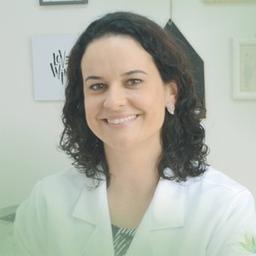Additional Filters
Gynecologists
Found 20 gynecologists
Dr. Renata Gimenez Costa Moreno
Gynecologist in Santo André
Gynecologist
Video consultation
Video consultation
Dr. Patrick Bellelis
Gynecologist, Obstetrician and Endometriosis Specialist in São Paulo
Gynecologist
Dra. Jessica Roseto
Gynecologist in São Paulo
Gynecologist
Dr. Anna Carolina Haddad Sayeg Lopez
Gynecologist in São Paulo
Gynecologist
Dr. Fernanda Esteves Simões Ramos
Gynecologist in São Paulo
Gynecologist
Dr. Débora Goulart Piantino
Gynecologists in São Paulo
Gynecologist
Video consultation
Video consultation
Dr. Filipe Muniz Bourroul
Specialist in Gynecology and Obstetrics in São Paulo. Specialist in Human Reproduction.
Gynecologist
Dr. Camila Bolonhezi
Specialist in Oncology and Gynecology in São Paulo
Gynecologist
Dr. Alexandre Genis Ghelman
Specialist in Gynecology, Obstetrics and Surgery in São Paulo
Gynecologist
Dr. Marcos Tcherniakovsky
Gynecologist, Obstetrician and Endometriosis Experience in São Paulo
Gynecologist
Dr. Miriam Waligora Lages
Gynecologist and Obstetrician in Barueri
Gynecologist
Dr. Veruska Barijan
Specialist in Gynecology, Obstetrics and Ultrasound in São Paulo
Gynecologist
Dr. Fernanda Duarte de Almeida Cavani
Specialist in Gynecology and Obstetrics in Itapeva
Gynecologist
Visitors who were interested in gynecologists also searched for:
Gynecologists by cities
Visitors who were interested in gynecologists also searched for:
General information on medical treatment
Gynecologist is essential for women's health
Have you ever wondered when you should see a gynecologist? Or perhaps you're unsure about which exams are really necessary at each stage of life? Let's clarify these and other important questions about this professional who is fundamental to your health.
How does a gynecologist work?
A gynecologist is a doctor specialized in the health of the female reproductive system. This professional accompanies you through all stages of life, from adolescence to old age, performing crucial preventive exams such as Pap smears and requesting mammograms when necessary.
The medical specialty in gynecology requires a specific 3-year residency after general medical training, ensuring in-depth knowledge of all issues related to women's health.
Recent research from the Brazilian Federation of Gynecology and Obstetrics Associations (FEBRASGO) indicates that women who maintain regular gynecological follow-up have significantly lower rates of late diagnoses of cervical cancer and other treatable conditions.
Why consulting a gynecologist is fundamental for women's health
Regular gynecological care goes far beyond routine exams – it is essential care at all stages of life, from adolescence to menopause. Many women only seek a specialist when symptoms appear, but prevention is the best way to avoid future complications.
Early diagnosis saves lives
Many gynecological diseases, such as cervical and ovarian cancer, do not present symptoms in the early stages. Tests such as Pap smears and mammograms can detect changes before they become serious, increasing chances of cure by up to 95%.
Intimate health in balance
Changes in the menstrual cycle, unusual discharge, or pelvic pain can indicate anything from simple infections to conditions such as endometriosis or PCOS (Polycystic Ovary Syndrome). The gynecologist helps identify and treat these issues before they affect your quality of life.
Guidance on contraception and fertility
Whether to prevent a pregnancy or plan one, the gynecologist indicates the methods most suitable for your body – from pills and IUDs to fertility treatments, if necessary.
Preparation for menopause and beyond
With hormonal decline, symptoms such as hot flashes, vaginal dryness, and osteoporosis may arise. Medical monitoring helps alleviate these discomforts and prevent diseases associated with aging.
Sexual health and STI prevention
The doctor can provide guidance on preventing sexually transmitted infections (STIs), such as HPV, HIV, and syphilis, as well as address issues such as pain during sex or lack of libido.
Regular visits to the gynecologist
Even when you don't feel any symptoms, visiting your gynecologist annually is essential. During these consultations, your doctor can diagnose infections, menstrual disorders, and sexually transmitted diseases early.
The gynecologist also guides you on your sexual health and contraceptive methods appropriate to your profile, considering your age, medical history, and personal goals.
A study published in the Journal of Women's Health revealed that 68% of serious gynecological conditions are detected in routine consultations, even before they present obvious symptoms, reinforcing the importance of annual checkups.
How to prepare for your gynecological appointment
To make the most of your appointment, note information about your menstrual cycle, recurring symptoms, and specific questions you want to clarify. Also bring previous test results for comparison.
It is advisable to avoid sexual intercourse, vaginal douches, and vaginal creams for 48 hours before the Pap smear, to avoid interfering with the results.
What to expect during a gynecologist appointment
Your consultation usually begins with questions about your medical history and menstrual cycle. The physical examination may include a vaginal examination and Pap smear to detect cellular changes in the cervix.
Depending on your age and symptoms, you may need ultrasounds or mammograms. The doctor will explain each procedure, ensuring your comfort throughout the process.
Don't worry – a good gynecologist always explains each step of the examination and respects your comfort. If you feel anxious, communicate this to the professional.
Gynecology at different moments of your life
Your gynecological needs change according to your age. In adolescence, the focus is on guidance about body development, menstrual cycle, and prevention of early pregnancy.
Between your 20s and 40s, annual Pap smears are essential, along with STD tests when necessary. During this phase, family planning and fertility issues often gain prominence.
After 40, mammograms become part of your preventive routine. The Brazilian Society of Mastology recommends starting screening at age 40, with annual exams.
From age 50, bone density tests become important to monitor your bone health during and after menopause, a period that brings new challenges and specific care.
Beyond prevention: modern treatments
Contemporary gynecology offers minimally invasive treatments for conditions such as fibroids and endometriosis. Techniques such as laparoscopy and hysteroscopy allow precise interventions with shorter recovery time.
Technological advances have enabled the development of hormonal medications with fewer side effects and personalized options for each clinical profile, significantly improving patients' quality of life.
According to data from the Brazilian Society of Video Surgery, minimally invasive procedures have reduced the average post-operative recovery time by 65% in the last ten years, also reducing post-surgical complications.
Treatments for common conditions
Polycystic ovary syndrome, which affects approximately 10% of women of reproductive age, now has multidisciplinary approaches involving hormonal regulation, nutritional guidance, and metabolic control.
For endometriosis, a condition that affects about 10-15% of women, options range from hormonal treatments to highly specialized surgeries, depending on the severity and specific symptoms.
When to seek a gynecologist urgently
You should seek gynecological care immediately if you notice intense vaginal bleeding or bleeding outside the menstrual period, as it may indicate anything from hormonal changes to more serious lesions. Acute and persistent pelvic pain also deserves urgent attention, as it may be related to ovarian cysts, pelvic inflammatory disease, or ectopic pregnancy.
Discharge with a strong odor or intense irritation are signs of possible infections that require specific treatment. Newly discovered breast lumps also warrant prompt consultation.
Research from the National Cancer Institute (INCA) shows that early diagnosis increases the chances of complete cure in cases of gynecological cancer by up to 95%, reinforcing the importance of constant vigilance.
How to choose the ideal gynecologist for you
Choosing a gynecologist with whom you feel comfortable is essential. Consider the professional's training, specialization, and clinical approach to ensure they meet your specific needs.
Communication is fundamental: you should feel comfortable asking questions and expressing concerns. Respect for your autonomy and clarity in explanations are indicators of a good professional.
Also consider practical aspects such as office location, accepted health insurance plans, and availability for emergency consultations when necessary.
Reliable evaluations and references
At AvaliaMed, you'll find specialists rigorously evaluated by other patients, ensuring an informed decision based on real experiences.
Our platform offers detailed information about each professional, including areas of specialization, experience time, and communication skills, essential aspects for effective gynecological care.
Why choose your gynecologist through AvaliaMed
By using AvaliaMed to find your gynecologist, you have access to professionals who have been evaluated by real patients, with verified and detailed evaluations about the quality of care.
Our platform allows you to filter doctors by specialty, location, and accepted health insurance plans, making it easier to find the ideal professional to establish a lasting relationship of trust.
In addition, we provide information about academic training, complementary specialties, and the clinical approach of each professional, allowing for a truly informed choice.
Don't put your health second. Regular gynecological care is an act of self-care that can prevent serious problems and ensure your quality of life. Find the ideal gynecologist for you today through AvaliaMed and invest in your well-being.
Frequently Asked Questions
Disclaimer
This website provides general information and insights from third parties. It is not a replacement for professional medical advice. Please consult a healthcare professional before making any decisions based on the information on this website. Be aware that you bear full and exclusive responsibility for the use of this website and its contents.
About
Contact UsAbout AvaliaMedPrivacy PolicyTerms of UseAccessibility StatementList your Practice on AvaliaMedPhoto GalleryMedical ArticlesLog inSpecialities
Aesthetic medicineOrthopedic SurgeonsGynecologistsPlastic SurgeonsDermatologistsEye DoctorsDentistsUrologistsClínicasHospitals
Sirio-Libanes HospitalAlbert Einstein Israelite HospitalHospital of the ClinicsSamaritano HospitalAlbert Sabin Israelite HospitalTreatments
Botox injectionDermoscopyColposcopyTummytuckIVFTooth Implantation ProcedureScoliosisPain managementCataract surgeryHypospadias repairTreatments
Cardiac catheterizationGastroscopyHeadachesADHD in AdultsFace sculpterExtractionsOrthopedic consultationStrabismus surgeryPregnancy followupBreast lift













